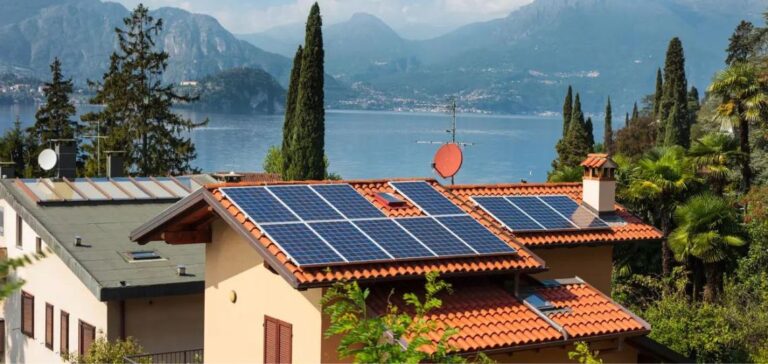Otovo, a Norwegian company active in the installation of solar panels for residential use, has announced a 46% reduction in its workforce.
The number of employees will fall from 366 to around 200, as part of an annual cost-cutting plan of between NOK 200 and 225 million (€17 to 19 million).
This decision, approved by the Board of Directors, is aimed at adapting the company’s structure to the current reality of the European market, where growth prospects have recently darkened. The European solar market is experiencing a marked slowdown.
After a period of strong demand following the energy crisis of 2021-2022, several markets, such as Scandinavia and Spain, are showing signs of saturation or contraction.
Otovo’s financial results for the second quarter show a 42% year-on-year fall in EBITDA, accompanied by a 46% drop in sales.
This context is prompting the company to reassess its priorities and adjust its operations.
The contraction of the residential solar market
Falling demand for residential solar panels in Europe, particularly in Scandinavia and Spain, is forcing Otovo to review its strategy.
These two markets, essential to its portfolio, have proved particularly volatile.
This contrasts with the period of rapid growth after the energy crisis, when government incentives and rising energy prices stimulated residential solar installations.
Otovo’s difficulties are representative of a wider adjustment observed in the sector.
Market players are having to adapt to a situation where public support is stabilizing and consumers are becoming more cautious.
This new economic situation, combined with growing competitive pressures, is forcing companies to optimize their operations in order to remain viable.
A necessary strategic adjustment
Faced with a shrinking market, Otovo is relying on a restructuring of its operations to maintain its competitiveness.
Downsizing is aimed at reducing fixed costs, making the company more agile in a difficult market context.
Otovo’s strategy highlights a broader trend in the solar sector: the need to react quickly to market changes and diversify strategies to limit risk.
Restructuring is not without its challenges.
Downsizing could lead to a loss of skills and internal tensions.
However, for Otovo, these choices are seen as essential to ensure its sustainability in the face of uncertain market conditions and increased competition in the renewable energy sector.
Outlook for Europe’s solar industry
The European solar industry is at a turning point.
Companies like Otovo operating in this market have to navigate a complex environment where economic, regulatory and competitive factors play a major role.
Strategic adjustments, such as downsizing and cost optimization, are now essential to remain competitive.
As Europe continues to push for an energy transition, solar markets are showing that sustainable expansion requires precise management and anticipation of market cycles.






















